TO
| Creator | Title | Description | Subject | Date | ||
|---|---|---|---|---|---|---|
| 1 |
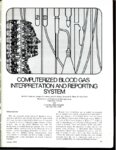 | Gardner, Reed M. | Computerized Blood Gas Interpretation and Reporting System | Biomedical Informatics | 1975 | |
| 2 |
 | Franklin Institute award dinner and ceremony held May 1, 1997 | This is a 1 hour, 42 minutes, 53 seconds video of the 1997 Franklin Institute Awards Banquet and Ceremony. The awards included a summary of each winner's achievements, the presentation of the award, and an acceptance speech. The award winners included Ralph L. Brinster, the Bower Award and Prize f... | Transgenic mice; Gene targeting; Genetic engineering; Molecular genetics; Mutagenesis; Homeobox genes; Histology - Pathological; Gene expression; Gene regulation; Genotype; Phenotype | 1997 | |
| 3 |
 | Digre, Kathleen B. | CT and hemifacial spasm. | Forty-six patients with typical hemifacial spasm had CT. Thirty-eight (83%) were abnormal, including two with surgically documented tumors. Thirty-six had a characteristic dolichoectatic vertebrobasilar artery, with the convexity pointing to the side of the spasm in 92% of the scans. This study sugg... | Hemifacial spasms; Tumors; Dolichoectiatic vertebrobasilar artery | 1988-07 |
| 4 |
 | Zhang, Kang; Yang, Zhenglin; Jiang, Li | Mutations in LRP5 or FZD4 underlie the common familial exudative vitreoretinopathy locus on chromosome 11q | Familial exudative vitreoretinopathy (FEVR) is an inherited blinding disorder of the retinal vascular system. Autosomal dominant FEVR is genetically heterogeneous, but its principal locus, EVR1, is on chromosome 11q13-q23. The gene encoding the Wnt receptor frizzled-4 (FZD4) was recently reported ... | Familial exudative vitreoretinopathy; FEVR; Inherited blinding disorders | 2004 |
| 5 |
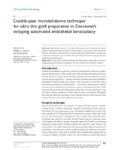 | Moshirfar, Majid | Double-pass microkeratome technique for ultra-thin graft preparation in Descemet's stripping automated endothelial keratoplasty | Endothelial keratoplasty is evolving with increased attention placed on the optical qualities of the posterior donor lenticule. In efforts to improve visual outcomes, the effects of the thickness, smoothness, and planar profile are being studied. This paper describes a double-pass microkeratome tech... | 2012-01-01 | |
| 6 |
 | Couldwell, William T. | Transmaxillary approach to the anterior cavernous sinus: a microanatomic study | OBJECTIVE: Several approaches to expose the anterior cavernous sinus have been used, such as frontotemporal, orbitofrontal, anterior subtemporal, and various transfacial approaches. In an effort to gain exposure to the anterior cavernous sinus without necessitating a craniotomy or wide transfacial ... | Anterior cavernous sinus; Clivus; Cranial base; Maxillary sinus | 1997 |
| 7 |
 | Gesteland, Raymond F.; Alam, Steve L.; Nelson, Chad; Felden, Brice; Atkins, John F. | Effects of 3'-terminal phosphates in RNA produced by ribozyme cleavage | During the course of a structural investigation of a selenocysteine insertion element from rat Type 1 iodothyronine 59-deiodinase (D1 SECIS), we wished to prepare milligram quantities of an RNA that comprised the upper stem/loop of this RNA structure (41 nt; Fig+ 1A)+ This stem/loop is a stimul... | In vitro runoff transcription; RNA; Trans-acting ribozymes | 1998 |
| 8 |
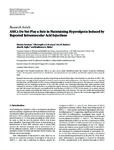 | Light, Alan R. | ASICs do not play a role in maintaining hyperalgesia induced by repeated intramuscular acid injections | Repeated intramuscular acid injections produce long-lasting mechanical hyperalgesia that depends on activation of ASICs. The present study investigated if pH-activated currents in sensory neurons innervating muscle were altered in response to repeated acid injections, and if blockade of ASICs revers... | 2012-01-01 | |
| 9 |
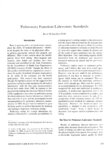 | Gardner, Reed M. | Pulmonary Function Laboratory Standards | Biomedical Informatics | 1989 | |
| 10 |
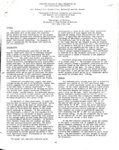 | Warner, Homer R. | Computer Analysis of Phase Parameters in Left Ventricular Contraction | Biomedical Informatics | 1976 | |
| 11 |
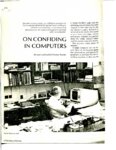 | Warner, Homer R. | On Confiding in Computers | Biomedical Informatics | 1975 | |
| 12 |
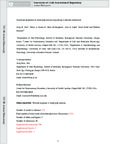 | Light, Alan R. | Functional properties of tooth pulp neurons responding to thermal stimulation | The response properties of tooth pulp neurons that respond to noxious thermal stimulation of the dental pulp have been not well studied. The present study was designed to characterize the response properties of tooth pulp neurons to noxious thermal stimulation of the dental pulp. Experiments were c... | 2012-01-01 | |
| 13 |
 | Rockwood, Alan L. | Mass spectrometry for steroids, immunosuppressants, and other clinical applications | Presentation slides on matching mass spectrometry technology to clinical applications. | Immunosuppressants | 2005-07-26 |
| 14 |
 | Huser, Vojtech | Chapter 5: RetroGuide Evaluation | This chapter presents a RetroGuide (RG) evaluation study which was conducted to assess the flowchart-based modeling approach. This study complements the previously presented case studies in an overall effort to evaluate the RG project. The evaluation was targeted at informatics users with small to m... | Retroguide, Evaluation study, Analysis of data, Structured query language, Biomedical informatics, EHR, RetroGuide | 2008-03-28 |
| 15 |
 | Kestle, John R. W.; Walker, Marion L. | Noncommunicating spinal extradural arachnoid cyst causing spinal cord compression in a child | Extradural arachnoid cysts in the spine are relatively uncommon causes of spinal cord compression in the pediatric population that are thought to arise from congenital defects in the dura mater. Most reports describe such cysts communicating with the intrathecal subarachnoid space through a small de... | 2006 | |
| 16 |
 | Couldwell, William T. | Surgical approaches to petroclival meningiomas Part II: extended approaches | In Part I, the classification, clinical presentation, and upper and midclival surgical approaches were discussed. This lesson covers extended surgical approaches, results, complications, and adjuvant therapy. | Petroclival meningiomas; Petroclivus; Surgical approach; Staged surgery; Complications; Adjuvant therapy; Radiosurgery; Resections | 1994 |
| 17 |
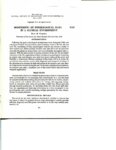 | Gardner, Reed M. | Monitoring of Physiological Data in a Clinical Environment | Biomedical Informatics | 1972 | |
| 18 |
 | Gesteland, Raymond F.; Atkins, John F. | Origin and destiny of adenovirus proteins | Lytic infection of human cells by adenovirus proceeds by a temporal expression of genes. Classically two phases have been defined: an early phase, which includes events occurring before the onset of DNA synthesis (8 hours), and a late phase, including events whose existence depends on the onset of... | Protein Biosynthesis; DNA, Viral; Adenoviridae; RNA, Viral; Time Factors | 1975 |
| 19 |
 | Wen, Ming; Van Duker, Heather; Olson, Lenora Mary | Social contexts of regular smoking in adolescence: towards a multidimensional ecological model | Using data from the Longitudinal Study of Adolescent Health (Add Health), this study investigates factors at the individual, family, peer, school, neighborhood, and state levels that are important for subsequent adolescent cigarette regular smoking after controlling for the baseline smoking behavio... | Adolescent smoking; Social capital; Family; Neighborhood; School; Teenagers; Teenage smoking | 2006-09-19 |
| 20 |
 | Warner, Homer R. | A "Link Trainer" for the Coronary Care Unit | Biomedical Informatics | 1968 | |
| 21 |
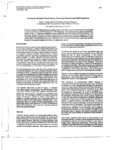 | Warner, Homer R. | A Computer-Directed Patient History: Functional Overview and Initial Experience | Biomedical Informatics | 1986 | |
| 22 |
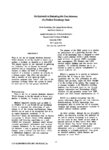 | Warner, Homer R. | An Approach to Evaluating the Completeness of a Medical Knowledge Base | Biomedical Informatics | 1989 | |
| 23 |
 | Schmidt, Meic H. | Castleman disease of the spine mimicking a nerve sheath tumor | Castleman disease is a rare lymphoproliferative disease of unknown cause. In most cases, afflicted patients present with a mediastinal mass although the disease may manifest in numerous other sites, including intracranially and rarely intraspinally. The authors report on the case of a 19-year-old wo... | Castleman disease; Nerve sheath tumor | 2007 |
| 24 |
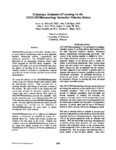 | Mitchell, Joyce A. | Preliminary evaluation of learning via the AI/LEARN/Rheumatology interactive videodisc system | AI/LEARN/Rheumatology is a level three videodisc system to teach clinical observational skills in three important diseases: rheumatoid arthritis, osteoarthritis, and ankylosing spondylitis. The AI/LEARN software was developed on an independent authoring system called GALE designed for MS-DOS based c... | 1992-01-01 | |
| 25 |
 | Schmidt, Meic H. | Spinal extradural arachnoid cysts: clinical, radiological, and surgical features | Extradural arachnoid cysts in the spine are rare and are seldom a cause of spinal cord compression. They are thought to arise from congenital defects in the dura mater, and they almost always communicate with the intrathecal subarachnoid space through a small defect in the dura. The mainstay of trea... | Spinal extradural arachnoid cyst; Spinal meningeal cyst; Neurogenic claudication | 2007 |
